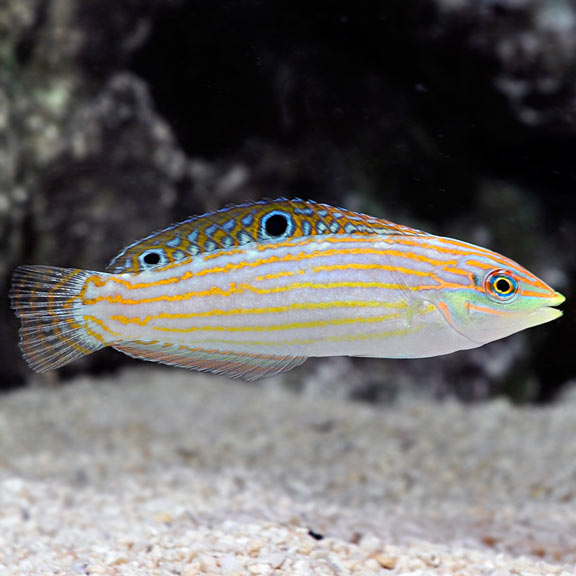Adorned Wrasse
Adorned Wrasse
check_circle Fast Shipping
check_circle Quality Products
check_circle Affordable Price
Reach out to us on ''available to order'' items via WhatsApp or email
Out of stock
Couldn't load pickup availability

Adorned Wrasse
package_2
Product Description
Product Description
Overview
In the wild, the Adorned Wrasse is distributed throughout the Indian Ocean and south to Natal, South Africa. The Adorned Wrasse is a reef-associated species, common on shallow coral and rocky reefs where males are typically found solitary while juvenile and female Adorned Wrasses form small loose groups.
The ideal setup for the Adorned Wrasse will be a well-established saltwater aquarium of at least 50 gallons in size with a tight-fitting lid. To best recreate a natural reef environment aquascape liberally with live rock, making sure to provide ample nooks and crannies for your Adorned Wrasse to explore, seek refuge, or forage for food. Be sure to include a large area of open substrate as well as open spaces for swimming. A sandy substrate layer 2-3 inches in depth is essential to provide shelter for the Adorned Wrasse as it burrows into the sand for the evening or when frightened. House the Adorned Wrasse with other peaceful wrasses, including members of its own species.
The natural diet of the Adorned Wrasse consists of benthic invertebrates and as such, large, hungry Adorned Wrasse will eat fireworms and pyramidellid snails, protecting corals and clams from these undesirable invertebrates. The Adorned Wrasse may also eat parasites off of tank mates. Though this hearty appetite for invertebrates seems beneficial, keep in mind that the Adorned Wrasse cannot differentiate between "undesirable" and "desirable" invertebrates. If the opportunity presents itself, the Adorned Wrasse will most likely make a meal of "desirable" ornamental invertebrates including fan worms, shrimp, and other crustaceans in the home aquarium. However, the Adorned Wrasse typically will not harm sessile invertebrates including soft or stony corals.
In the home aquarium, the diet of the Adorned Wrasse should consist of a diverse variety of food items including vitamin-enriched frozen mysis shrimp, vitamin-enriched frozen brine shrimp, and other meaty foods along with high-quality marine flakes and marine pellet foods. The Adorned Wrasse will benefit from frequent small feedings throughout the day.


